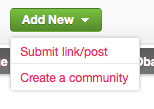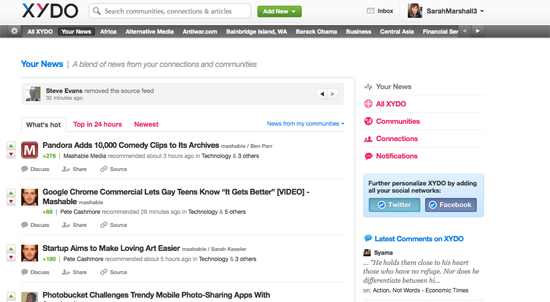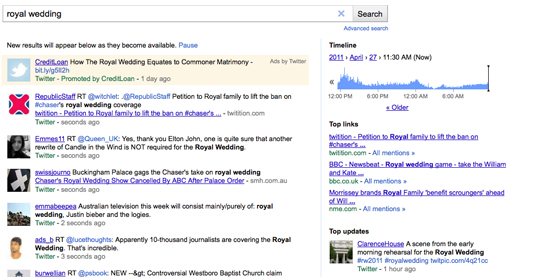Digg gets drunk, has a threesome with Reddit and Newsboiler, which results in XYDO.
That’s how social news network XYDO, which launched in public beta yesterday, was described in one tweet.

Jeffrey Bates, co-founder of Slashdot.org, opted for:
If Reddit and Hacker News are social news 2.0, XYDO is clearly 3.0 and beyond.
And author Jesse Stay likened it to “Quora meets Digg” and “Twitter on steroids”, according to XYDO’s website.
If you’ve used Digg, Reddit, Newsboiler and Quora, that’s all you need to know. If not, read on.
XYDO takes a bit of getting used to and I’ve not come across any handy video guides, but the following should help you find your way around.
What is XYDO?
XYDO is a social news network that takes stories from your Twitter and Facebook feeds. Users then collectively prioritise and organise stories by pushing them up or down the list. The ranking is influenced by clicking the green arrow up, the red arrow down and by sharing on Twitter and Facebook.

You will automatically be following the people you follow on Twitter and you will be assigned to various communities based on your Twitter connections.
You can view either news from your ‘connections’ or from your ‘communities’ and get a story list in a form which suits you: by custom RSS, email, tweeted links or Facebook.
So what does XYDO mean for journalists and newsrooms?
It is a source of stories. It is a way of networking, discussing stories and tailor-making your own news story feed.
You can also join communities (like ‘media and journalism’, which is already set up) and even create your own community.

It is also a way of increasing site traffic. You can submit stories, which will then be ranked by others on XYDO.

You can follow @xydoapp on Twitter. “Media experts” from XYDO also curate various communities on Twitter channels. You can follow @x_mediajourn for “the best news and blog posts on the topic of media and journalism”, for example.
Read more about XYDO on Mashable, ReadWriteWeb and Musings from Sussex.





